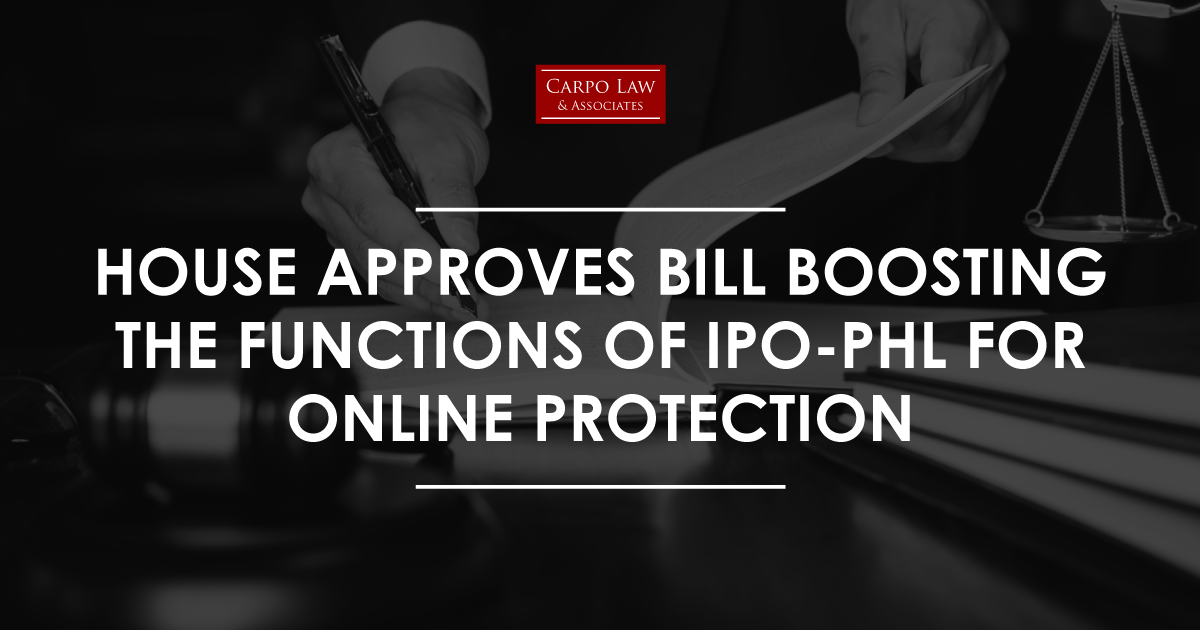
House Approves Bill Boosting the Functions of IPO-PHL for Online Protection
The House of Representatives approved a bill seeking to strengthen the powers and functions of the Intellectual Property Office of the Philippines (IPO-PHL) after its second reading last Tuesday, May 16.
Albay 2nd District Rep. Joey Salceda authored the House Bill (HB) 7600, which was approved through viva voce or voice voting.
Further additions to the Republic Act (RA) No. 8293 or the Intellectual Property Code of the Philippines will be placed once the HB is enacted. It will cover the scope of what could be counted as counterfeit, pirated, and illegal goods, which would include posted content online.
Salceda stated, “In practical terms, it allows the Intellectual Property Office of the Philippines to receive complaints and petitions to take down infringed content posted online or to conduct site blocking. The complaints can be heard in a simplified manner that also adheres to the constitutional requirement of due process – including means for appeal.”
Salceda added, “And within five days, the IPO-PHIL can decide on the complaint, and 48 hours thereafter, compel an internet service provider to block the offending site.”
HB 7600 also aims to grant the IPO-PHL more enforcement functions. These functions include the gathering of intelligence information, conducting investigations, and development of countermeasures against pirated and counterfeit content.
Moreover, the HB places responsibility on internet providers to follow orders to disable websites that are proven to host pirated content.
Salceda explained, “One pirated content becomes viral, it becomes very difficult to prevent other users from accessing it. Copyright laws become impossible to enforce on viral content. So, the point of any intellectual property enforcement law in the digital age must be to prevent infringement before it becomes viral.”
Salceda noted that the bill is necessary because eased digitalization due to the internet made it effortless for content to be copied and made viral, which harms content creators who have their work pirated.
